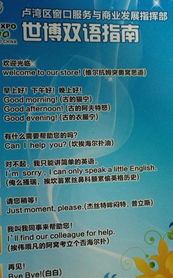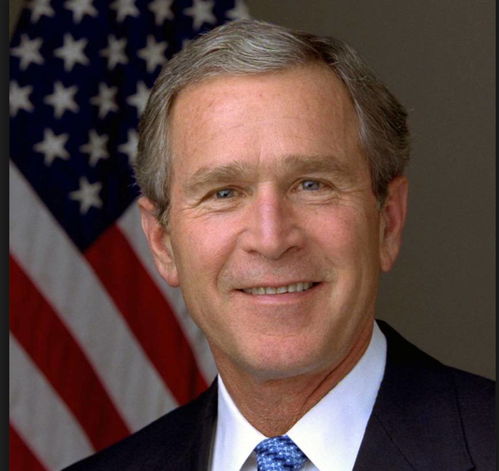世界杯的英文是什么?
The Magic of the FIFA World Cup: An English-Infused Journey of Global Unity and Passion

In the grand tapestry of global sporting events, there is one that stands apart, shimmering with a unique blend of exhilaration, drama, and an unparalleled sense of unity—the FIFA World Cup. This quadrennial spectacle, where nations from every corner of the globe converge to compete on the lush, emerald-green pitches, is more than just a sporting competition; it's a month-long celebration of culture, passion, and the beauty of the world's most popular game: soccer (or football, as it's known across much of the world).
The phrase "World Cup" itself is enough to ignite a spark in the hearts of millions. Spoken in the universal language of English, these four words encapsulate a myriad of emotions and memories. For some, it's the sound of vuvuzelas echoing through the South African stadiums in 2010, creating an atmosphere of electric energy. For others, it's the sight of Diego Maradona's "Hand of God" goal in 1986, a controversial moment that remains etched in the annals of history. And for many more, it's the unforgettable cry of joy when their nation lifts the iconic trophy, a symbol of triumph and unity that transcends borders and languages.
The World Cup's allure is universal, and English plays a pivotal role in its global reach. As the lingua franca of international communication, English acts as the bridge that connects fans from diverse linguistic backgrounds. It's the language in which the game's rules are articulated, the one used by commentators to narrate the matches, and the medium through which players from different countries communicate both on and off the field.
During the World Cup, English becomes more than just a tool for communication; it becomes a catalyst for connection. In the stands, fans from different nations, speaking different languages, can share a moment of excitement or commiseration through a common vocabulary. "Goal!" "Great save!" "What a match!"—these phrases, spoken in English, resonate with everyone, transcending linguistic barriers and fostering a sense of camaraderie.
But the World Cup's magic isn't solely in its linguistic unity. It's also in the sheer spectacle of the event itself—the pageantry, the rituals, and the stories that unfold on and off the pitch. Each World Cup has its own narrative arc, a tale woven from the threads of victory and defeat, hope and despair, individual brilliance and collective effort.
Consider the 2006 tournament in Germany, where an unassuming Italian team, led by the veteran goalkeeper Fabio Cannavaro, emerged victorious. Their journey was a microcosm of the World Cup's unpredictable nature. From the thrilling group stage matches to the heart-stopping penalty shootout against France in the final, every moment was a testament to the game's capacity to thrill and captivate.
Or look at the 2014 edition in Brazil, where the host nation's dreams were dashed in a semi-final loss to Germany, a match that saw the Germans score seven unanswered goals. While the defeat was a crushing blow for Brazilian fans, it also served as a reminder of the game's ability to humble even the most favored teams.
And who could forget the 2018 World Cup in Russia, where underdog nations like Iceland and Croatia captivated the world with their valiant efforts? Iceland's population-defying run to the quarterfinals and Croatia's thrilling, come-from-behind victory against England in the semi-finals were moments that highlighted the beauty of soccer's unpredictability and the spirit of competition.
English is the language through which these stories are told, the vessel that carries the emotion and drama of each match to a global audience. Commentators, analysts, and reporters from around the world use English to dissect the games, highlight the key moments, and share their insights with fans across the globe. Through their words, we experience the thrill of a last-minute goal, the agony of a missed penalty, and the sheer joy of lifting the trophy.
Moreover, English is the language in which the game's legends are born and immortalized. Names like Pele, Diego Maradona, Zinedine Zidane, and Lionel Messi are household words, recognized and revered by soccer fans worldwide. Their stories, told and retold in English, have become part of the sport's mythology, inspiring generations of young players to chase their dreams on the pitch.
But the World Cup isn't just about the players and the matches. It's also a cultural event, a celebration of diversity and unity. English-speaking fans from different countries can share their customs, foods, and traditions, creating a melting pot of cultures that reflects the game's global appeal. From the lively fan zones in Russia to the vibrant street parties in Brazil, the World Cup becomes a moment where people from different backgrounds come together to celebrate the beauty of soccer.
The English language also plays a critical role in the World Cup's legacy. As the language of international commerce and diplomacy, English is the means through which the economic and social impacts of the tournament are communicated. From the boost in tourism and infrastructure spending to the long-term benefits for the host nation's soccer infrastructure, the World Cup's legacy is often articulated in English.
Yet, despite its global reach and linguistic unity, the World Cup remains deeply rooted in local traditions and identities. Each host nation brings its own unique flavor to the event, infusing it with elements of its culture and heritage. The vibrant colors and rhythms of Africa during the 2010 tournament, the passion and pageantry of South America in 2014, and the mix of history and modernity in Russia in 2018 were all testament to the World Cup's ability to celebrate and embrace diversity.
As we look forward to the next World Cup, scheduled for 2026 and jointly hosted by the United States, Canada, and Mexico, English will continue to play a central role in connecting fans and sharing the game's magic. With three nations, each with its own unique linguistic and cultural identity, hosting the tournament, English will be even more critical in fostering a sense of unity and shared purpose among the diverse fan base.
In the end, the FIFA World Cup is more than just a sporting event; it's a global celebration of culture, passion, and unity. And English, as the world's common language, is the thread that binds us all together, allowing us to share in the excitement, drama, and beauty of the world's most popular game. So, as the next World Cup approaches, let's embrace the magic of the tournament, celebrate our diversity, and cherish the moments that unite us all—all in the beautiful language of soccer.
- 上一篇: 如何打破循环,轻松步入生活正轨
- 下一篇: 长大后,为何对花拓也的爱渐行渐远?
-
 世博会的英文表达是什么?资讯攻略12-02
世博会的英文表达是什么?资讯攻略12-02 -
 揭秘DJ必摇精选:英文慢嗨开场曲叫什么?资讯攻略12-05
揭秘DJ必摇精选:英文慢嗨开场曲叫什么?资讯攻略12-05 -
 空姐的英文表达是什么?资讯攻略02-01
空姐的英文表达是什么?资讯攻略02-01 -
 揭秘:美国总统奥巴马的正确英文名是什么?资讯攻略01-24
揭秘:美国总统奥巴马的正确英文名是什么?资讯攻略01-24 -
 探索奇幻之旅:揭秘《魔兽世界》的英文名称资讯攻略12-02
探索奇幻之旅:揭秘《魔兽世界》的英文名称资讯攻略12-02 -
 揭秘:火线与零线的英文名称大揭秘资讯攻略03-21
揭秘:火线与零线的英文名称大揭秘资讯攻略03-21











